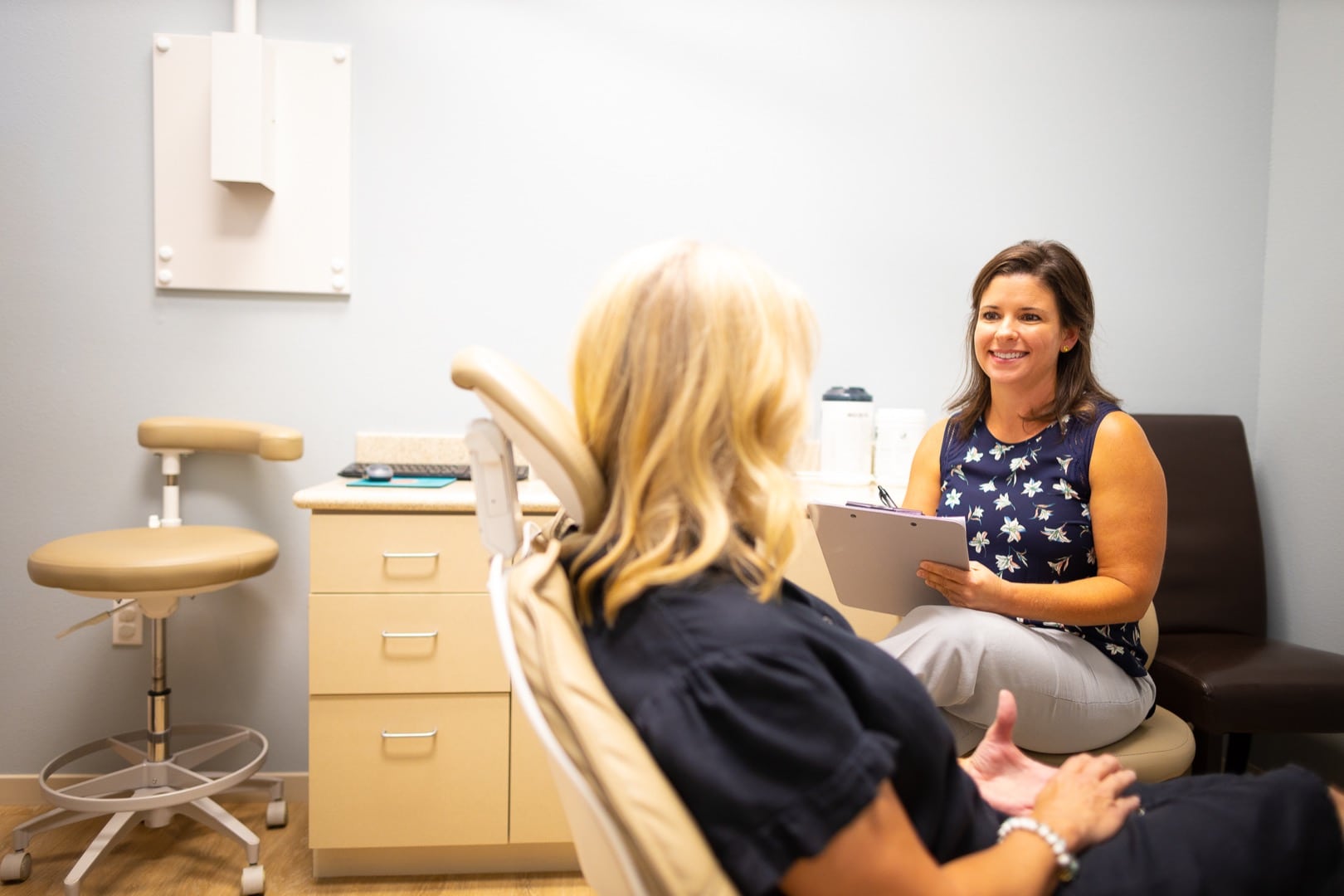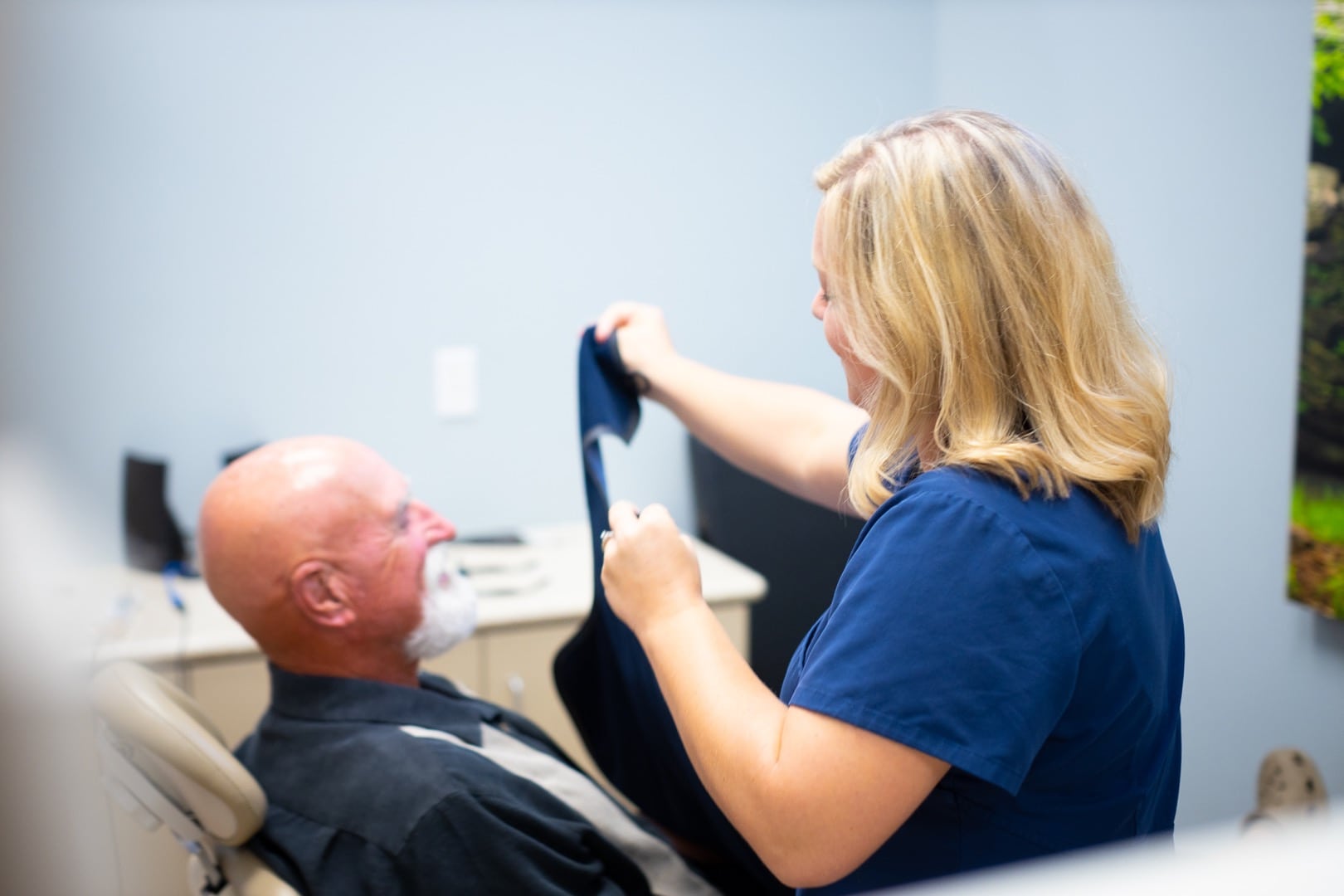It happens to almost everyone. Sooner or later, you’ll get a cavity. What happens if you don’t get cavities filled? Is it OK to let it go for a while since it’s not hurting? How long can you leave a cavity untreated? A cavity may not seem like a big deal at first, but it can turn into one. Left untreated, a cavity can make its way to the pulp — the live part of the tooth. It can kill the tooth and cause everything from pain and discoloration to infection and tooth loss.
At Beavers & Broomfield Family Dentistry, we encourage our patients to fix their cavities as soon as possible. The longer they’re left, the more damage they can do, the more complicated the treatment, and the better the chances of losing the tooth. Let’s explain why it’s so important to fix cavities right away.

What Is a Cavity?
Let’s start with the basics. What is a cavity, and how is it formed? A cavity is a weakening and degradation of the enamel, the hard outer shell that protects the tooth. A cavity is caused by tooth decay, in which bacteria, plaque, and tartar left on the tooth damage the enamel. A cavity is when tooth decay penetrates the enamel and begins making its way into the center of the tooth.
The second layer of the tooth is the dentin, which is a softer version of the “shell” of the tooth. It contains nerves, so damaging the dentin can cause pain. The center of the tooth contains the pulp, or live tissue, of the tooth. The pulp holds more nerves and the blood vessels that keep the tooth alive. Once the cavity reaches this point, it causes an infection in the tooth, called an abscess. Eventually, it can cause tooth loss.

How Long Can You Leave a Cavity Untreated?
Cavities start small. You may not even know you have one for several weeks, so it’s so important to get regular checkups at your dentist. Our examination and x-rays will be able to see if you have even tiny cavities.
Because they start small, you may think you have plenty of time to get a cavity fixed. You may think you can wait to fill a cavity until your next checkup in up to six months. That’s not the case at all. Just because you can’t feel the cavity at first doesn’t mean it’s not doing serious damage to your tooth. A cavity can penetrate a tooth within 3-4 months. Once it reaches the tooth’s interior, where the pulp is located, it can cause pain and infection and eventually kill the tooth. That’s what happens if you don’t fix a cavity quickly.

What Happens If You Don’t Get a Cavity Filled?
What happens if you don’t fill a cavity? We know that if it penetrates the tooth, it can cause damage, but let’s explain how this happens.
Plaque and bacteria build up on the tooth and cause tooth decay, usually due to poor oral hygiene (which is why you should brush and floss at least twice a day!). Some medications and medical disorders can also make a person prone to tooth decay.
The plaque and bacteria dissolve the minerals that make up the enamel, which is the hard outer shell we mentioned. The enamel is the main source of protection for the tooth. Once that is penetrated, the rest of the tooth becomes very vulnerable. The rest of the damage happens very quickly.
Because the dentin is softer, it dissolves faster than the enamel. That means the cavity penetrates it much quicker. Because the dentin has nerves, you will feel the cavity at this point. It’s going to hurt. The longer it’s left untreated, the more it will hurt.
Without treatment, the decay dissolves through the dentin and into the pulp, where the blood vessels that keep the tooth alive reside. If bacteria get into the tooth’s blood supply, it can cause infection. This is called an abscess, and it can be very painful. At this point, the best fix for this is a root canal, where the interior of the tooth is removed and backfilled. This essentially kills the tooth, which usually must be capped.
Without treatment, the decay kills the pulp of the tooth. The tooth becomes discolored and eventually dies. Sooner or later, the patient will lose the dead tooth. The decay and infection can also cause jaw pain and bleeding of the gums.

How We Can Treat a Cavity
Beavers & Broomfield Family Dentistry in the Fayetteville, AR, area can treat your cavities before they become painful and before you risk losing the tooth. Our caring, compassionate dentists start by taking detailed x-rays to see how deep the cavity has penetrated the tooth. From there, we can provide the best treatment options for you. We can fill a cavity if it’s at the early stages or perform a root canal if it’s progressed.
We also have restorative services available. We can cap or even replace a damaged tooth. We can apply a whitening treatment to help with discoloration. We can even provide a treatment to strengthen soft enamel.
The best way to prevent cavities is to practice good oral hygiene. Floss first, then brush for at least two minutes at least twice a day. Be sure to visit us every six months for regular appointments. Part of our general dentistry services includes taking x-rays to check for any developing cavities, so we can repair them before they get worse.
With the proper care, you can avoid cavities and save your smile!





